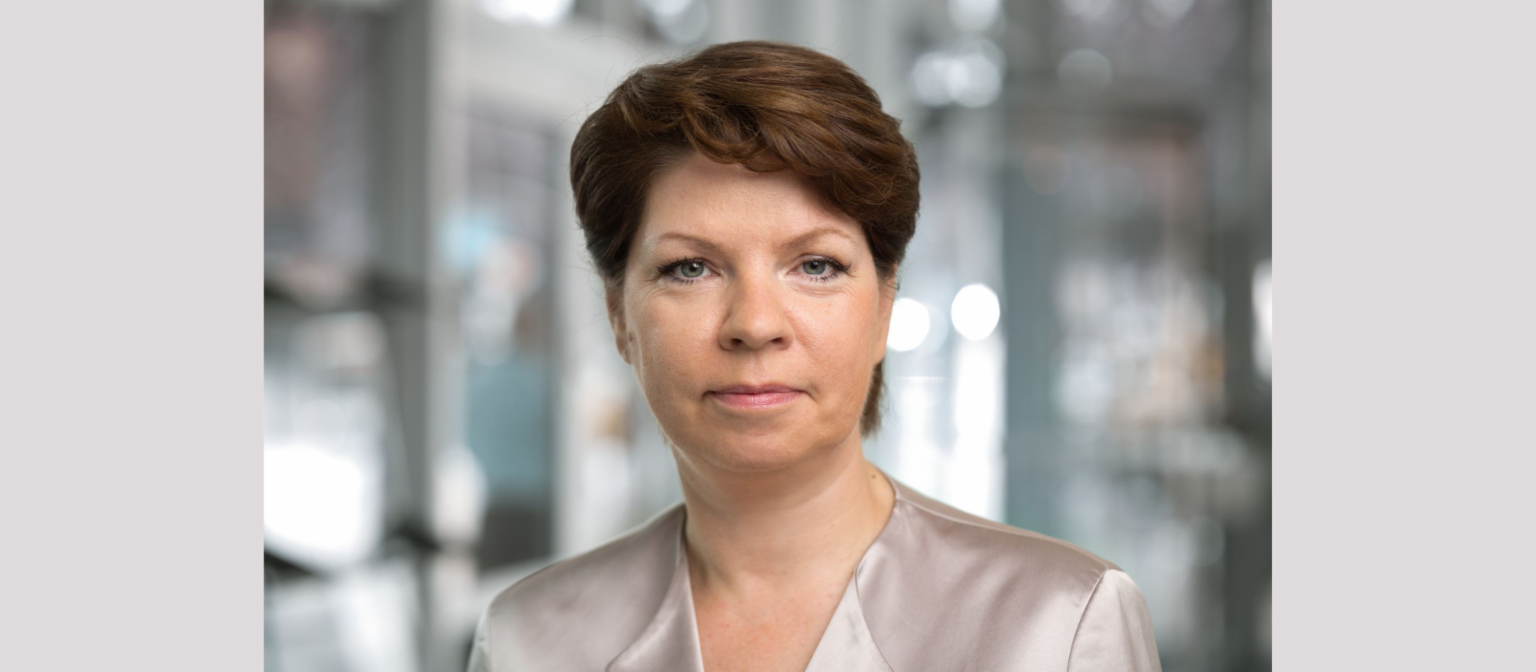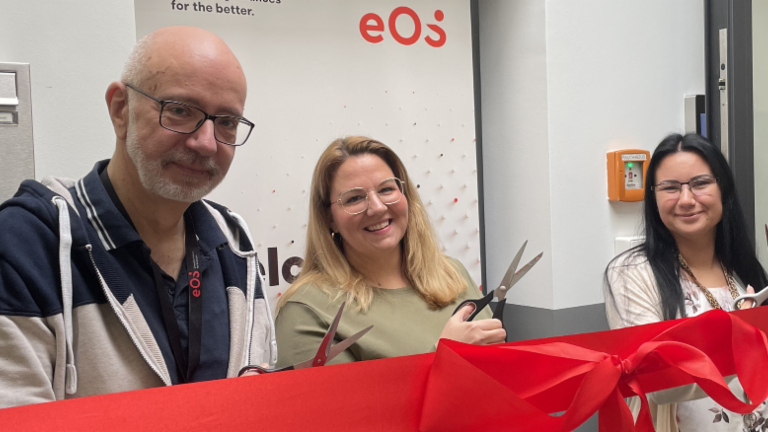Kirsten Pedd, honorary president of the Federal Association of German Debt Collection Companies (BDIU) and long-time Head of Public Affairs at the EOS Group, is retiring. It's time to reflect on nearly 30 years in the debt collection industry.
Kirsten, you started at EOS in 1997. How has the debt collection industry changed since then?
On one hand, the field of debt purchasing has gained significant importance. Not least due to the experiences from the financial crisis of 2008, policymakers have created a framework for a functioning secondary credit market. By selling non-performing loans to companies like EOS, banks are better prepared for crises. On the other hand, the debt collection business has evolved technically. While thick binders were daily companions in handling claims during my early days, everything is much more digital today. For example, smart IT systems provide recommendations based on data analysis regarding the best communication channels to reach delinquent customers statistically. Additionally, debt collection letters now include QR codes that direct consumers to service portals where they can pay their debts online in a self-service manner. However, I see the biggest change elsewhere.
Where is that?
I believe the industry has become much more transparent. EOS and other companies communicate more with the public than before and demonstrate how debt collection works in practice. Many prejudices, often arising from ignorance, have been dismantled in this way. I have repeatedly noticed this in discussions with politicians: Talking and explaining helps create mutual understanding. After all, debt collection is essential for a functioning economic cycle.
What regulatory changes have particularly shaped the industry in recent years?
The debt collection industry is one of the most heavily regulated sectors in Germany. With the law against dubious business practices and stricter debt collection regulations, policymakers have imposed an even tighter framework. My impression is that here, all companies have sometimes been held accountable for the misconduct of a few 'bad apples' and that individual cases have been generalized to the entire industry. I don't know of anything comparable in other sectors. However, there have also been some positive developments: For example, the centralization of debt collection supervision at the Federal Office of Justice, which EOS and the BDIU had long demanded. This ensures a uniform interpretation of the law and strengthens all reputable debt collection providers.

Talking and explaining helps create mutual understanding.
The Federal Court of Justice (BGH) recently ruled in favor of EOS in a landmark decision regarding "group debt collection." How do you view this decision?
I am relieved that the BGH dismissed the consumer advocates' lawsuit and issued a ruling that is unparalleled in clarity. As the court confirmed, it is irrelevant which debt collection company a creditor hires for debt collection: Even in the case of affiliated companies, the debt collection fee can be claimed from the delinquent customer. We have always maintained this legal opinion, and I am pleased that the BGH shares it. The ruling has created legal certainty for the industry and ended a years-long discussion.
You have been involved in the executive board of the Federal Association of German Debt Collection Companies (BDIU) for 16 years, including eight years as president. What were the biggest challenges and successes during your tenure?
The biggest challenge and simultaneously the greatest success was undoubtedly the unanimous adoption of the Code of Conduct. It has been mandatory for all BDIU members since 2021. What makes me particularly proud is that the code is not a 'one-pager' but a comprehensive set of rules that outlines the entire lifecycle of a claim. It has also been positively received by the media and policymakers and represents a real milestone for our industry.
Let's look ahead: What do you wish for the debt collection industry in the future?
The debt collection industry is an important part of the economy, and I hope it continues to make that clear. I also wish for a fair and respectful approach to delinquent consumers, as prescribed by the Code of Conduct. Of course, debt collection companies must represent the interests of their clients. But ultimately, it is always about achieving a fair balance of interests so that a claim can be successfully resolved.
After nearly 30 years in the industry, you are now heading into a well-deserved retirement. What do you have planned for this new chapter of your life?
I am letting this new chapter come to me in a relaxed manner and am curious about what lies ahead. For now, I look forward to approaching the coming months without specific plans and seeing what new topics I can get excited about. If the opportunity arises, I can well imagine engaging in volunteer work and giving something back to society.
All the best, and thank you for the conversation, Kirsten!
Explore more from EOS



